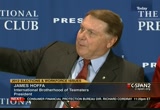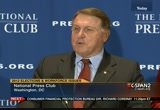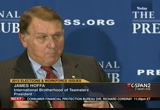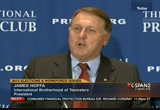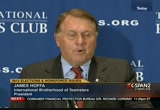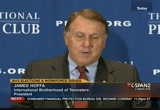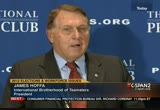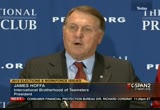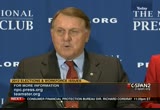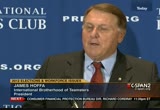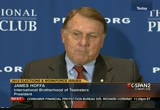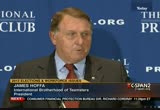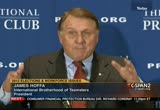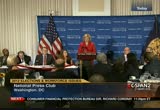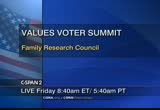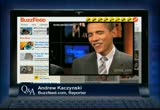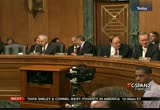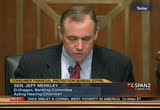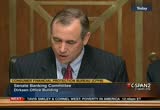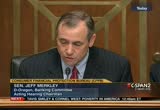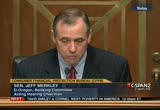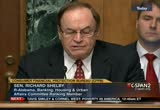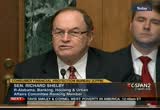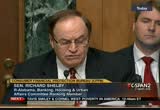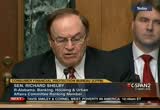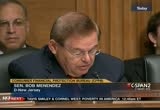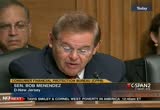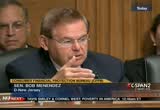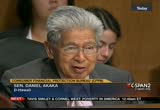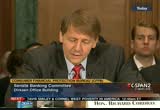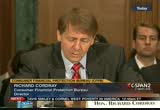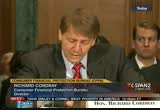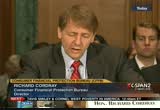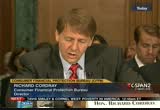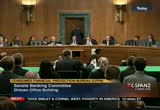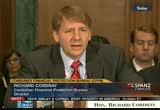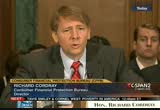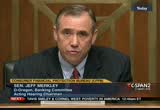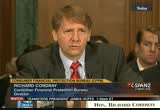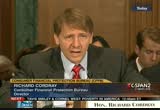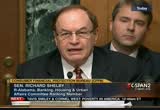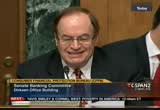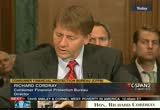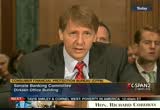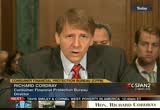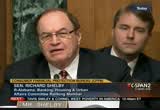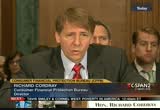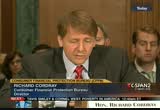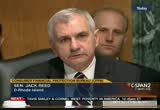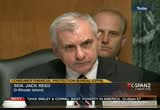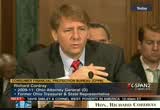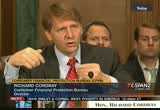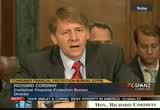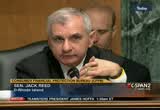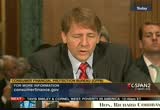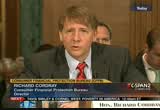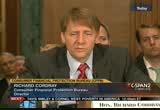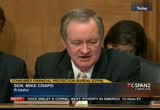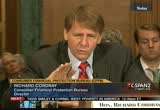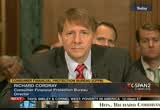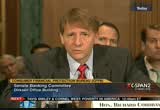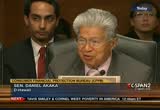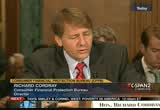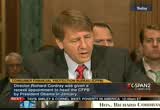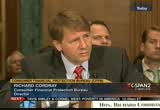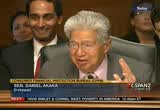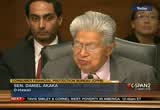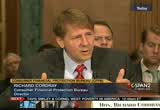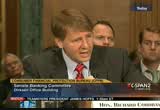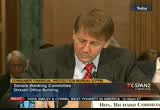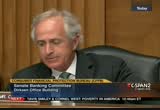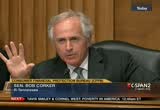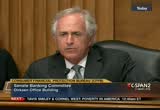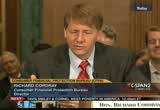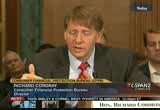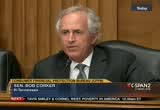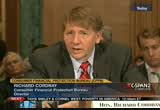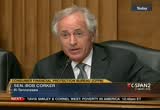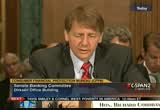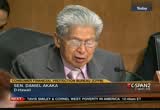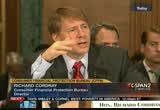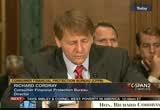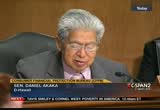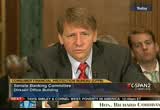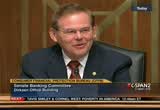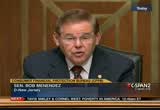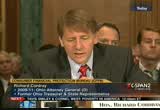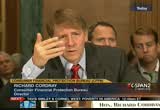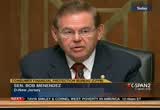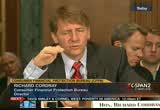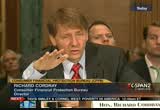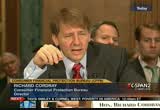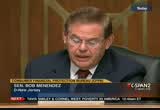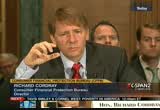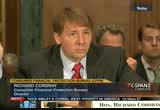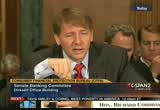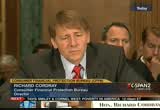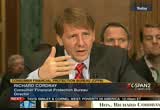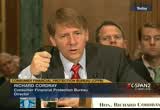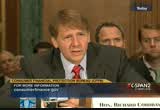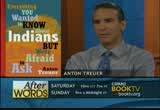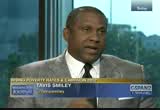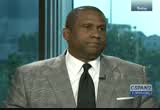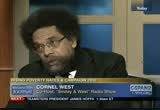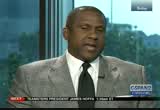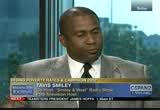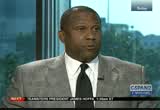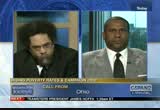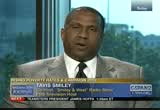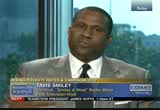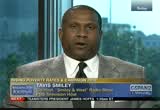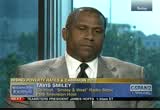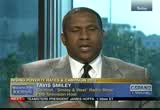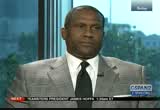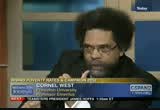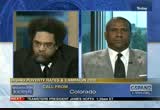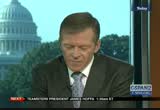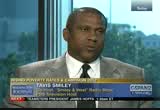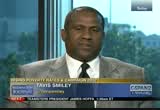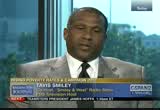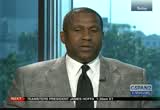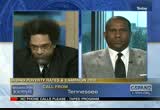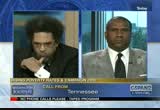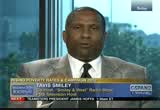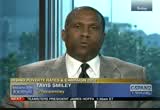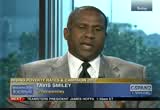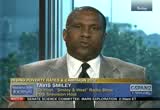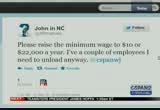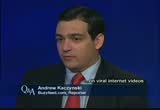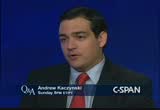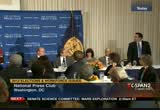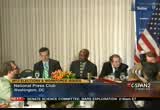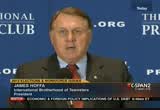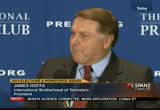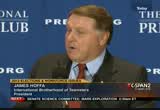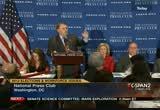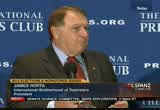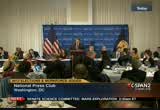tv Capital News Today CSPAN September 13, 2012 11:00pm-2:00am EDT
11:00 pm
where they show american productivity of workers going up like that. you see the wages of the average american are flat. i was talking to some economists yesterday. they talk about the lost decade for people today in america, working people have not advanced, not in our unit, they generally have not advanced in the last 10 years because of the crisis, because of the crash, because of a lot of reasons they have not gone up. the lads have not gone up, but the productivity of gone up for a lot of reasons. without productivity seems to me are workers should be sharing the right. traditionally you are awarded for her part to be. in this economy they are not rewarded and that must be changed. that's one of the things we have to do. it's not about cutting wages. it's about making sure people work hard, making sure we find new ways to get the job done. you know, look at some of the things the uaw has done, where
11:01 pm
they preserve jobs and yet been very, very competitive. there are ways to get the job done and it takes new and innovative ideas. basically productivity is up in the american workers need a raise. >> the focus lately has been on the public sector union the polishes taken on collective bargaining. the private sector and trade unions have the worry about similar attacks? how can they survive in an antiunion atmosphere? >> a sickly talk in the war on workers. that's exactly what it is. in one of the states, the republican politicians came to us and they said, you know, we really just want the public employees. were not after you. you guys are okay. we didn't believe them. but that's what they were trying to tell us that we would oppose them. in the labor movement we really realize an injury to one is an injury to all of we are very strong and standing with our friends and compatriots in the
11:02 pm
public sector. we really have to keep standing with them. they can't divide us, but one of the things they're trying to do is divide us and say they don't need us. >> what needs to change for private-sector unions to to grow again? >> well, think we need an economy. number one, the economy is down. if the economy comes back to see everything start to expand. basically companies will start investing. we do a lot with regard to transportation. transportation is very, very tied wetherbee ups or track income is tied close to the economy. it's a barometer of the economy. how many things are being shipped? we really see that dumping a long period goes up, goes down, there really hasn't taken off. we need to get the economy moving again and hopefully we get by this election we can start doing things to get the economy moving again because a growing economy will fix all that and that's all you need.
11:03 pm
>> which is a bigger challenge for organized labor today? relevance or brand name? >> well, i think it's organizing. we had to go out with people in our union to get more and more people to the polls and people to believe in our union that tiffany here. just 300 people just joined our union. that's what this is about, making sure there were strong and that people believe in the teamsters union for the uaw or the euro cwp would ever do is come and union now. you know, it was funny i had an interview with somebody down in north carolina at the convention and they were saying, you know, what do you tell people at north carolina at 12% unemployment? you know what i told them? join a union. >> seven years ago your union joined with usc w., s. c. i i'll
11:04 pm
tell and restaurant workers to form a new labor federation called change to win. some people up flippantly called the change to win coming change to seiu were loose change. the labors and hotel workers are now back in the afl-cio. other than some modest organizing efforts come as a change to end a total flop? >> we don't think it's a flop. were very close to a large union, union as big as ours. the seiu is even bigger than ours. we have very close working relationships and what we found, the reason why we left the afl-cio. and nothing bad to say, but we wanted to emphasize more organizing because that is our core of what we want to do. and that we felt was better outside the afl-cio. i want everybody to know with regard to politics, with regard to social issues, that even though were in another federation covered the teamsters, seiu, work extremely
11:05 pm
close up our friends in the afl-cio. we know each other, we have respect for each other. we get it together and were very collegial. so basically we are united in one cause to make america stronger. >> the teamsters said that a number of bitter battles with a small aircraft union, it aircraft mechanical association. what is so bad? >> well, it was called a pony union. they talk about it being, you know, a p.o. box in in connecticut. and that is about what it is. they've really done nothing for workers and we are out there in the airline industry and good wages and good contracts were making sure people are protected. it really comes in and they sell people a bill of goods like they did at northwest airlines and basically cause strikes and
11:06 pm
shouldn't happen. most people got replaced, so they really are a parasite with regard to labor movement and we really don't need them. >> teamsters are one of unions gaining memberships. how do you give our workers and union any think it's near the decline in the middle-class? >> well come i think these are very committed very tough right now. if we had a better economy, we are successful. the teamsters successful and organizing, but i think everybody would do better if we had better economy, if people were building factories are putting people back to work. i think he was the more growth in the labor movement. although other unions are growing in trying to do that right now. the low economy i think is very, very hard. there's a lot of fear out there. people have lost their savings. the last decade i was talking about in that last a decade. they lost their wages, lost their home -- the value of their homes are down. their 401(k)s are down.
11:07 pm
a lot of fear out there right now. we need a robust economy to get people interested in strong again with regard to making sure features are assured. >> when the labor movement saved the labor you joined at the afl-cio around which you call the labor table. what did that experience value about the need for one labor federation and according to campaign for organized labor? >> we are very proud of what we did at the labor table, basically some of the things i was talking about. the war on workers at the ohio, wisconsin and michigan come with former labour tables for all of us pooled our money to basically put good people on the ground in every state to fight these battles. in other words was it just the teamsters. we pooled our resources into one idea we only intend to go back a mobile will continue to do that because we realize with regard
11:08 pm
to politics come with regard to the attack on working families, we have to be together for me to pool our money and the labor table has been a big success for a summer very proud of that. >> the teamsters have been under a consent decree said nancy and and the name. when you think it will be lifted? >> hopefully soon. we can work in a long time. were under a consent decree in a consent decree has been on since 1989. we would like to see evicted. but talking to the government about it. our union is a clean union and there is no corruption. we are democratic, more democratic than almost any other union. we just went through another cycle of elections, so i don't know what else there is to be done. we're looking forward to settling our case. a consent decree is the oldest kid some attack it and you would think someone would want to settle it. we're ready to enter into a settlement for both sides and
11:09 pm
both of us to clear the jury. >> how hard is it on a day-to-day basis for needed to operate under the consent decree in the negative publicity? >> the consent decree doesn't impact the daily operations of the union. you know, there's reporting, it's a novel at for a million dollars a year. but the daily operations of the union are not affected. the amount of money we have to pay to maintain the apparatus established by the consent decree is something that i wish would go away because they can put that money into organizing and we can organize even more people. >> you touched on this a moment ago, but shut your teamsters and corruption in the same sentence anymore. what has changed? >> well, i'm glad to hear that. that's pleasant. were very proud of our union. we've got a clean union right now and our executive board is
11:10 pm
the most talented executives around the country. our whole union is a different culture now than it was a while back and we are union that is very pride and we divide ourselves, the fact we are clean union were very proud of the fact that were so democratic we believe in democracy. these are things we work on very, very hard. as a culture in our union as being basically hard-working and basically making sure that we have a clean union. for very proud of that. >> overnight free was organized by your successor. how many members of the organized mumphrey hollers since he became president? >> i hate to correct you, do we organize overnight. overnight was turned into ups freight and with the greatest distance of my secretary-treasurer, ken hall,
11:11 pm
our union try to organize overnight but it was just overnight and we spent millions of dollars trying to organize that we were not successful. low and behold, ups bought them. we were able to talk to ups to say if we shut the members want to join the union into a card check agreement, which you go along? they went along with that we went out and for the first time over 12,000 members at ups are now teamsters summer very, very proud of it. that's a major accomplishment. >> other than pan benefits, what issues to be the most difficult to negotiate in the next national master freight agreement? >> well, i think that the issues are -- these issues everywhere. the ups is a unique company. obviously wages, hours and working conditions we want to make sure conditions are better and we want to make sure we maintain our benefits. we want to make sure that we
11:12 pm
maintain our number of full-time workers. but i think also today with ups, you'll make sure that we work on health care which is extremely important to members and their families and also pensions being the fact is when you have people making good wages and make it a little bit older, they started thinking maybe the next money we get should go into pensions. i think there's a lot of pressure to increase pensions to make them better and the answer is everybody is interested in more money when they retire because they see was going on on in america. so one place people look at good pensions, but it's our goal to get them even better pensions. i was a pension will be one of the big issues in the negotiations. >> what should be done to strengthen and protect these pension plans? >> well, pension funds are difficult right now. it is no secret. all you have to do is read the paper that is pension funds mature comments important to get new employers and. and with the recession and the
11:13 pm
crash -- the bush crash of zero wait, it's very difficult to grow the pension fund. what we are having and what we're seeing with pension fund is something that we didn't see yours that have been my father first set of the central state pension fund, there was a poor people working in one person retired, if anyone was retired. that is easy because then things get done. now the pension funds have matured we have one guy working in five guys retired. and that math is hard to maintain. and so you have to rely on the stock market. you have to land giveaways to get money to keep the benefits that. unless we get new people and come it's difficult to maintain pension funds the way they are. what we need to do is have more employers coming in to maintain and give more people working to make sure the ratio is the one to five the opposite way. one finds hard to maintain.
11:14 pm
>> out of the teamsters reconciled their mission to protect workers rights of the increasing expectations among employers and employees to work even longer hours? >> well, the teamsters are pretty test. we tell them it's not going to happen. we're going to work hard and we believe an honest days, work for an honest days pay. we want more pay for our people. we want more safe jobs for people. we want more conditions that were able to get those from our trucking companies. portable to get them from ups. one of the issues that came up with some of our reporters was harassment. people were being harassed. we put a stop to that. we want to make sure we maintain good jobs with more money because nobody can stand still in this economy. no matter what the employers say, cost of living goes up every year. you can't have people going backwards. we didn't join the unit to go backwards and were not going to disappoint them.
11:15 pm
>> what affect does nafta have on american workers? >> i think nafta has been one of the great disasters. it's funny how in washington d.c., depends who you talk to. nafta was great. most to me, i've seen millions of jobs disappeared, grow across the border. i could give you 20 names of teamster companies that close, went out of business, you know, from mr. coffee to square d, whirlpool. i could go on and on and on. one day they just walk in until 300 people that work hard every day, have their life they are, how their kids in college, health care, pension. we're closing this plant and moving to mexico. the guy said what did we do wrong? are we not productive? yeah, you're productive. were making money, but we can make more money in mexico.
11:16 pm
and that is the story you hear, the most heartless story. the story is probably the most ironic one. after they put the fact jury, they put all of the machines on a train and took them to mexico and they put them in a plant down there. and then they asked our people to come down entrain the mexicans. needless to say, we told them what to do with that. we did not train the mexicans. so the answer is nafta has been a disaster. i don't know how people think that's a good deal. all you got to do is go across the border. you feel the companies that used to be in the united states. the rod down there now. thousands and thousands of them. i don't know of any mexican company coming up here making any factories. so it's been a disaster for us and the danger is not everybody in washington figures that out. there are some people still walking around saying that was a great idea.
11:17 pm
there was nafta, captain and the workers got the shaft. >> what are your goals for negotiate a contract with ups, the largest teamster employer? >> i've can also be nearing the two of us will negotiate the contract. were very proud that this week we had -- last week we had rank-and-file members and from all over the country. ups come ups freight. we had the leadership income of 10 surveys. with a good idea were elected with the contract and is going to be basically we think we can get a good contract, but it's going to be more wages, more pensions and i think pensions will be an important level. we want to maintain health care. health care from this day and age is tremendously important to families. they have to have health healthe for families, wives, children. that's very coming very important. we think those are the issues. the important thing is we're always working to make sure we
11:18 pm
get more full-time jobs also because as you know there's a lot of part-time mayor and we want to make sure to keep up with the number up because that really is important to our members. >> were almost out of time, but before asking the last questions i have a couple housekeeping matters to take care of. for supply lecture makes you better upcoming luncheon speakers. on october 2nd we have secretary ernie duncan, we'll take stock of american education in the run-up to the presidential election. on october 10, general martin dempsey, chairman of the joint chiefs of staff will be speaking and on october 31st carron erickson, president of penn state university will be here to speak to us. second i like to present our guests with our traditional national press club coffee mug. >> thank you very much. >> i do have one last question for you. instead of an 18-wheeler, the
11:19 pm
teamsters consists of two horses. it's not because of horsepower, what's the significance of the horses and will they be run in the kentucky derby? [laughter] >> first of all, think you want to know their they are called [laughter] >> first of all, thank you it's another names. they are called [laughter] >> first of all, thank you it's another names. they are called. but worse is really maintain the tradition of the teamsters as if anybody reads western novels, you know what he teamster raise with a small tea. teamster is a person that rides and drives a great wagons across the country. that's the teamsters are not our tradition, so we make sure we maintain the wheel and we maintain the two horses is our tradition the power union was settled. >> how about a round of applause for our speaker. [applause] >> thank you all for coming today. i also like to thank the national press club stats including the journalism institute of broadcast center
11:20 pm
11:21 pm
>> the family research council posted voters summit tomorrow. >> i think people really like to see where politicians views have shifted over the years. i think people like to see whether mitt romney and 94 was campaigning for welfare reform, for abortion. they want to see where he was during his 2002 campaign, 2007. i think people really like to see how politicians have devolved. there's sort of an element
11:22 pm
that's almost a got you a limit, but an element that this is incredibly interesting. >> i try to think why it is he has changed so often. why he finds it so difficult to come down on one side of the issue and instead service flows between both issues. >> someone who is running for state office for the first time there was a governor named rob okoye. >> abroad is a trailblazer and hero of mine. >> the best way to describe a sort of the bible beating halt of the internet. >> marwick does feature porter andrew kaczynski on c-span's q&a.
11:23 pm
>> the head of the consumer financial protection bureau said today that a 20% down payment requirement will not be part of the new rules on home mortgages. richard cordray testified instead of bureau with the pudding will assign prepaid credit cards. the received within 72,000 consumer complaints, mostly about credit cards, student loans and home mortgages. >> a hearing of the committee on foreign banking affairs comes to order. i am delighted that we can have this chance to hear from richard cordray, director the consumer financial protection bureau and
11:24 pm
the occasion is his first, i believe semi annual report to congress. so it's a tradition we will have that had hear chairman johnson is unavailable to attend this morning's hearing. he wanted me to personally thank you, mr. cordray, for being here and to commend you and your team for all of their superb work. he also asked that i submit his statement for the record. today's number 13, two days short of the four-year anniversary of the collapse of lehman brothers and the monumental efforts that started thereafter on the financial system and with it our entire economy and i think it's appropriate to reflect on the many causes that contributed to that, issues of financial supervision, monetary policy failures, challenges the too big to fail banks come issues with the gics come issues with
11:25 pm
predatory mortgages and exploding interest rates. thanks anon big financial companies making high-risk bets. change the derivatives, regulatory shopping or regulatory arbitrage. credit rating agencies with complex adventures. securitization of products without adequate disclosure in some cases with substantial conflicts of interest with sellers betting on the security for sox failure. it's a long list. but the point is short and simple. there were large number of serious flaws in our financial architecture that came to light in 2008 that the market by itself could not correct. we have taken steps to set our nation's economy and regulatory system on a different path. but those steps required continuous monitoring and improvements along the way.
11:26 pm
no matter how you slice it, consumer protection failures were at the heart of the last financial crisis. they weren't the only cars and consumer protection is not only solution, but it is an essential part of the puzzle. consumer protection is right, simply on the grounds of treating a family fairly. would any of us would want to be treated when buying a home or car, paying the credit card bill or engage in any transaction were real money from hard-working families is at stake. the mission of the consumer financial protection bureau is to do that come establish a marketplace where firms compete freely and fairly so that consumers can make intelligent decisions for themselves. the point is that consumers, students, families, older persons, veterans, minority communities, all of us ought to have a shot at building strong financial foundations for themselves and their families. but we do this, the benefits of
11:27 pm
our consuming and see the multiply upwards to the economy, helping to build a vibrant broad-based economy for the 21st century. when we don't, the rest of the economy, ordinary families becomes unstable and unreliable as we saw in 2008, operate hazardous. i think you're in a report suggests that we are well on her way to building agency that can fulfill it mission but before his creation was too often ignored. i think members of the committee look forward to digging and more deeply on the point still be making today in the important challenge of empowering consumers and creating financial foundation on which families can thrive. with that, and like to turn over the microphone to ranking member shall be for his statement. >> thank you, mr. chairman. good morning. today is the chairman has
11:28 pm
pointed out we will hear from richard cordray contractor of the bureau of consumer financial protection. the majority title of this hearing, holding the cfp be accountable. nevertheless, mr. cordray appears before us always completely immune from congressional over were permitted to ask them questions like today. such questions are especially important now because the activities in its first year likely overshadow activities in the years to come. of particular interest here to me is how the bureau has exercised this authority thus far. for example, recently the bureau issued a proposed rule on mortgage disclosures come in. deep within its 1100 pages committed through expressed concern over a particular disclosure required by dodd-frank. the bureau said it found the new disclosure, and i quote, would be difficult to calculate and
11:29 pm
explain the consumers would not likely be helpful to consumers and may distract consumers from a more important disclosure, their words. in response to this finding, the bureau is considering, as i understand it, exempting companies from complying with this requirement. this problematic statute however races more fundamental question, i think, about how the bureau will address statues that he determines to be harmful. in this case can the girl could ask congress to amend the statute. instead, the bureau has interpreted its exempting authority i believe so broadly that believes he can just ignore the statue, ignore the law. congress needs to clearly understand the balance of this authority is interpreted by mr. theresa werner here. after all, if the bureau can
11:30 pm
easily ignore the statue, it raises the more serious question of whether congress are the bureau, has the final say over what the law is. today i would also like to know more about the limitations on the bureau spending authority. for example, dodd-frank granted the bureau the power to set its own budget and spending priorities without any congressional oversight. in addition to the funds received from the federal reserve, the bureau also controls the money in it for the dems relief fund. under dodd-frank, the brew was authorized to disperse and the money paid into the fund that is not paid to the vet guns. dodd-frank only requires that such money be used, quote, for purposes of consumer education and financial literacy programs. this is just another way i believe that you know is structured differently from any
11:31 pm
other banking regulators. the occ, fdic and federal reserve do not have such a slush fund. instead, they turn over the civil penalty is that they collect for the united states treasury. accordingly, i would like to know how the euro will decide how the money in the fund will be allocated and whether such use is comply with the mandate of dodd-frank. unfortunately, without significant reform, i believe there's little congress can do, even if the bureau this allocates and misuses these funds. until that time comes, it appears that the most we can hope for is a hearing like today, where we can merely ask questions. thank you, mr. chairman. ..
11:32 pm
>> you take ten of thousands of complaints from credit cards, mortgage loans, and other products. you created a form so consumers understand what kinds of loan they are getting into, and whether it's good for them, and that was widely prizedded by both borrowers and banks, and you listen carefully to the stake holders incoming members of the congress, and you have been even-handed in taking their
11:33 pm
concerns into account, and you began enforcing consumer protection laws already with an enormous benefit for consumers in the tens of millions of dollars in the capital one deceptive marketing practice. you've done that despite the fact that many members have fought tooth and nail against the consumer financial protection bureau. they fought to ensure the agency did not exist. they fought for big carveouts from it and ensured no one would even become a director. even though, there's nose fighting to defund or come up with new ways to overrule the bureau however they can, but i know that the president and congressional democrats including myself fought hard to create this agency and dismanet ling it or weakening it would be a terrible mistake. the devastating financial crisis we went through would not have teaken place if someone was
11:34 pm
standing up for consumers instead of just wall street. great consumer protections would have stopped the mortgage lending tricks and traps for consumers. we should have -- we should hold wall street and financial servicers accountable for whether they treat consumers fairly. the consumer protection bureau does that by setting clear rules of the road in the future and enforcing them where you have the power to do so. i look forward to this hearing about the progress as well as some issues i want to raise and about your continuing your important mig. thank you, mr. chairman. >> anyone else who wants to make an opening statement? with that -- oh, senator, do you have a sometime to make? it's your opportunity to make
11:35 pm
your statement. >> chairman -- >> oh, senator akaka, do you have a statement? >> yes. thank you, chairman, for holding the hearing of the semiannual report to the congress. i must say that in its first year that cfpb and the bureau has made great, great strides in educating and empowering and protecting our consumers in the financial market place and to have the opportunity of what you've been doing and maybe what can be done later on, but i wanted to take the time to tell you i truly appreciate what you're doing and your staff as well in helping the consumers
11:36 pm
from hawaii as well as in the country, and so i look forward to hearing your testimony. thank you, mr. chairman. >> i would like to remind the colleagues that the record will be open for the next seven days for opening staples and any other materials you want to submit for the record. with that, you may proceed with your testimony. >> thank you, mr. chairman and members of the committee, thank you for inviting me to testify today about the protection bureau. we're eager to do that, and we appreciate and respect the importance of the oversight. one year ago, the nation had the first federal agency focused solely on protecting consumers in the financial market place. the semiannual report we're
11:37 pm
discussing today and through january 1-june 30 of this year. as the report shows, we've been using all the tools to protect consumers across the country and pledge to continue the work to promote a fair, transparent, and competitive consumer financial market place. through our regulatory tools, we've proposed smarter rules to fix the broken mortgage market with common sense solutions, writing rules to simplify disclosure forms and rules that ensure they do not receive mortgages they do not understand or can want afford. the rules also bring greater transparency and accountability to mortgage servicing, and the careful process is before we propose a rule, a team of economists and market experts evaluate potential impacts, burdens, and benefits for consumers, providers in the market. the push for accountability extends beyond services holing
11:38 pm
banks and non-banks accountable for following the law. prior to my appointment, non-banks were never supervised. we have to supervise non-banks in the markets of mortgages, payday loans, 5 and private student loans. we have the authority to supervise the larger participants in non-banks as defined by the rules. so far, we have added credit reporting companies to this group. it's important for us to exercise sensible oversight of the consumer finance market, but it's also important that we empower consumers themselves to make responsible financial decisions. our know before you owe campaign involves us working to make mortgages, credit cards, and student loans easier to understand. we also developed ask cfpb, an interactive online data base with answers to consumers' most frequently asked questions. we also launched a first ever data base of individual complaints about financial
11:39 pm
products starting with credit cards. consumers can use the website to review and analyze information and draw their own conclusions about the cues mer service provided with these financial products. we also think it's important to engage directly with consumers so we know more about the struggles and frustrations they encounter in their daily lives. the bureau held numerous field hearings across the country to talk face-to-face with consumers in a variety of topics. our website has a feature called tell your story which encourages consumers to share with us their personalñhr stories to help infm our approach in addressing issues in the financial market place, and perhaps most significantly, we resolve consumer disputes with lenders taking complaints on the website at consumerfinance.gov as well as by mail, fax, phone, and referral from other agencies. as of september 3rd, we thus far received 72,297 complaints about
11:40 pm
mortgage products, finance, and services, and the pace the complaints increasing over the past year. supervision, enforcement, and engagement provide us with information about consumer financial markets. we engage in outreach to large and small institutions including banks and notary public-banks to gather the best current information as we make policy decisions. we pride ourselves on being a 21st century agency whose work is evidence based so we also conduct our own in-depth studies on consumer financial products like reverse mortgages and private student loans issuing public requests for information that seek input from consumers, industry, and other stake holders on issues like overdraft fees, prepaid cards, and the financial exploitation of seniors. the new consumer bureau@ñ÷ workd on the projects while being engaged to build a strong foundation for the future. the bureau woed to create an infrastructure that promotes
11:41 pm
transparency, accountability, fairness, and service to the public. the first year has been busy and full, and this report reflects hard work by people whom i greatly admire and respect. they are the half sized call imper dedicated to public service and we look forward to fulfilling an agency help all americans improving the ways and means of the financial lives. thank you, i'll be glad to respond to all questions. >> thank you very much for your testimony, and, again, i'll have the clerk put five minutes on the clock for each member, and i'll jump in quickly here. you know that through those various ways you solicit consumer feedback, i believe there's been 55,000 or so complaints, and that's enough that i'm sure you start to get a picture of what's happening across the country, and out of those complaints, if there were three or four issues that seem to rise above the rest in terms of citizen concern, what would
11:42 pm
those be? >> so, thank you, mr. chairman, for the question. this reflects the fact we have been staging in a different period, our ability to receive consumer complaints on different types of products, and so we started with credit cards, we've added mortgages, and we've now added private student loans and deposit accounts and a few other items, and we will be adding more as we go. in the areas of mortgages and credit cards and student loans, which, perhaps, stick out the most, we've receivedded the most capabilities about mortgages. frankly, i think this probably reflects the same thing you and your staff find that people who call and contact your offices in need of help sometimes desperately, are the same people who contact us. a lot of concerns about difficulties in paying their mortgage, what's happening when that occurs whether there's any possibility of working on some
11:43 pm
sort of provision or plan to deal with the problem and the urgent crisis that creates for family in a household, various problems with mortgage servicers who are the same kind, and i know your staff, and we experience the frustration of dealing with some of the mortgage servicers who have frankly provided poor customer service. it's a mixed bag. some actually do a decent job, and some of them have not done a decent job. those have been a lot of sources of complaints for us. on credit cards, i think it's notable that for my standpoint, we've received fewer complaints on credit cards than aexpected. i think this has to do with the effects of the card act and greater emphasis on customer service by the credit card companies themselves. i've been to the processing centers where they take consumer complaints and working them very hard. i would also say they have been quite exonsive to the bureau and the -- responsive to the bureau in terms of providing relief. i want to note that for the
11:44 pm
record. student loans, same as a mortgage, they have crushing debt loads finding it difficult to work with the party on the other side to try to understand what their payment options are, what the rights are, how they can manage the situation, and how they can reach an appropriate resolution. >> certainly, a piece of your work involves creating the fair playing field and eliminating deceptive or front practices, but another piece is on the front end, financial literacy, financial education, i want to note that my colleague, senator akaka has been, i think, very visible, and aggressively looking to tackle the topic for a long time, and i thank you, senator akaka, for your leadership in this area. now with your organization and your mission, which includes
11:45 pm
financial education or literacy. do you have insights on what we should be concerned about or ways to proceed to help our consumers be better at judging opportunities they see in the market place? >> thank you, senator. this has been for me working in ohio and incorporating it in ohio that every student should have financial education before they graduate from high school, and that is now a law in ohio, should be law across the country. it's important for that to be the case. this is so important for people being functioning citizens of our society that they are able to cope with their financial affairs. should be a passion of all of ours. i have always been quick to say when i've been asked, sometimes people ask i'm the head of the consumer agency, don't you think consumers bear responsibilities for their own decisions? i absolutely do. i think we all have to bear responsibility for our own decisions. having said that, there are
11:46 pm
things we can do to make it feasible for consumers to cope with the market place. the know before you owe products on mortgages, student loans reduce the gap between people's capability and the difficulty of the decisions they are faced with. financial literacy efforts around the country are something this nation and the states and local school districts have to pay attention to. it's in the interest of employers who are not distracted by various financial problems making them risks in the market place, and i think we have the opportunity to work with churches and other institutions that, again, care deeply about the well being of their congregations and memberships and want to see them succeed both materially and spiritually. that's important for this country. >> thank you very much. with that, i'm going to invite senator shelby. >> thank you.
11:47 pm
mr. cordray, you used the word "complexity," and we'll get into some of this now. the dodd-frank creditors that they disclot, quote, "total mortgage percentage," and they are using its, quote, "exception and modification authority under section 105a and dodd-frank section 1032a." section 1032a does not have this, and i'm sure you know this, contain the exception and modification language that appears in section 105a and f. do you believe that there is an exception in modification authority in section 1032a? >> it's a very good question, senator, and it's one that some of our lawyers have poured over,
11:48 pm
and there's lawyers outside who poured over it as well, and we do have exception authority under several different provisions of the statutes we administration -- >> no, the question was do you have it under section 1032 # a? >> including 1032a. >> yes, and where is it in 1032a? >> in 1032a -- >> i want my staff here to be listening to this. >> that's fine. 1032, a, reading from the statute as i go says that the bureau -- the title of the section is disclose sures, and it's stating that the bureau may prescribe rules to ensure the features of consumer financial products or services initially and over its term are fully andr actively disclosed to consumers in a mapper that permits consumers to understand the cost benefits and risks secretary of stated with the product or service in lights of facts and
11:49 pm
circumstances, and it goes on to describe model disclosures, the basis for rule making, and it describes safe harbor that any person that uses a model form including with the rule under the section shall be deemed in compliance with respect to the model form, and it talks about trial disclosure programs giving us some latitude to work up programs to test how consumers actually respond and address those issues. >> let me ask you a further question in the area. in other words, i assume you believe that the bureau's authority from what you are saying, to write rules includes the authority to exempt and modify stat story -- statutory requirements. that's troubling because a statute is a statute clear, and i don't believe you can change that by a rule. >> yeah, i think -- >> do you disagree with me on
11:50 pm
that -- >> i think the verbs -- >> no, i asked a question. do you disagree if the statute is clear, unambiguous that you cannot change that statute by rule? you, or anybody else. >> okay. >> no, i'm asking the question, yes or no. >> may i answer and explain? >> i hope so. first, i want you so answer and then explain. >> this is one provision -- >> you're not anxiousing the question. >> the truth in lending has provisions, some more explicit than this, but what's clear is congress intends us to write rules around disclosures and clarify and interpret laws congress provided us with. in terms of ignore, i do not think we should ignore statutes nor can we and subject to judicial review. >> ignore overrides that. >> well, interestingly enough, there's requests for us to consider our exemption authority or modification authority to
11:51 pm
consider how provisions of law actually apply in a practice call mapper to different banks and other institutions, and part of our rule writing function is to take comment from individuals and stake holders across the spectrum and to consider how best to apply the law to the rules because we have that delegated rule making authority. i would absolutely agree with the tenor, i think, of your question which is don't consider that you, as a consumer bureau, can ignore or rewrite the law. we do not believe -- >> it seems like that's what you are doing. i hope that's not what you are doing. if you do, we're going to hold you accountable. >> and you should do so, and i fully welcome that, yes. >> you -- i've got nine seconds i guess. [laughter] in your testimony mortgage rule, you state that the bureau has proposed smarter rules that will help fix the broken mortgage market with common sense solutions, your words.
11:52 pm
the mortgage rules proposed by the bureau impose huge compliance costs. many of the rules number in the hundreds of pages, and one rule exceeds a thousand pages. these costly and very complex rules present greater compliance challenges for small banks than for large banks which have, as we all know, large compliances have more money for fight and for play. explain to us why these rules will not put small banks at a competitive disadvantage because they provide so much for the american people, especially small business. >> i share your outlook on that, senator, and i talked to bank groups and credit union groups -- >> how are you going to deal with it then, share my concern. >> in a number of ways. first, we just created, announced yesterday a community bank advisory council and credit union advisory council to have direct pipeline to us to talk about the concerns and issues
11:53 pm
they have in the sort of burdensome regulations, and regulatory uncertainty, another issue they raise. second, we do have the authority, and this is the exemption authority you questionedded earlier, to potentially exempt smaller institutions from rules that don't necessarily make as muchceps to comply this them given the community bank business model, a very responsible, in my view, model of lending and dealing with customers. we have -- we have and will exercise that authority where we hear from small providers that they have great concern about the impact of potential rules issue and they have persuasive cases to make about how the business model does not imp kate the concerns of the rule. we used that in the mortgage servicing rules, the mortgage loan origination rules, and we will use it where that's appropriate. again, subject to oversight from the congress and from the courts, but i think that that is appropriate because i've acknowledged and very much
11:54 pm
believed small providers did not create the problems that led to the financial crisis. we should not solve the financial crisis by keep heaping unnecessary burdens upon them. the devil is in the details on that, and we are working on that as we go. we just exempted thousands of small providers from the new remittance rule. they will not have to come ploy with it if they do fewer than 1 # -- 100 transactions a yearings and we will continue to listen carefully to them and try to reagent and respond to them where we have authority to do so. that's our outlook and perspective, and i'm happy to come and speak to you any time you and your colleagues have concerns in that regard because i regard that as quite important issue for us. >> thank you. mr. chairman? >> senator reid. thank you very much, mr. chairman, and thank you, mr. cordray for your excellent work. by my rough count, you or your colleagues have been before the
11:55 pm
committee 26 times. i know holly's been here a number of times leading the section with respect to military personnel doing a great job. your interaction with congress is frequent, and i think that represents your, not only willingness, but understanding of the need to communicate with us and our understanding of the need to supervise your activities, and so the second point i want to mention is you mentioned is that that's the know before you owe program, and one of the great powers that you wield is the power informing consumers about choices they can make. when you go econ101, one of the things is to both buyers and sellers have, quote, "perfect knowledge" of what's going on, and frankly, one of the observations that is obvious from the crisis of 2008 and 2009 was that it was a one-sided
11:56 pm
operation of consumers with very little knowledge of products. there was no real serious attempt to reform them, ect., so i think what you are doing there makes markets more first time and more competitive -- efficient and more competitive, and as a result, benefit not only the consumers, but the markets in regime. with those points, i'll get to the questions. you recently settled your first major enforcement action with respect to credit card operations of the bank, refound $140 million to potential victims so consumers got a rebate essentially from this mispractice. you required additional pents of $25 million to your agency and $30 million to occ, and you also published a compliance bulletin putting others on notice about the subject marketing practices. can you explain your approach of the enforcement action and since this is the first one, i think terrorist appropriate for you to comment on it, and, also, it appears to me, confirmed that
11:57 pm
the individual entity essentially agreed what they were doing was not consistent with the law. is that fair? >> thank you, senator, for the question. let me talk a little bit about our approach to enforcement, and i always have to be a little careful in the area because specific investigations are notary public-public, and it would not be fair to companies investigated to talk about those investigations what they may not amount to anything in the end, and they don't have a chance to speak for themselves. among the things that i think this first resolution illustrates and intend in the approach is we want to give broad, but as specific as possible notice to all participants in the market about the concerns that we see that are potentially violations of the law. this particular occasion involved deceptive and misleading marketing of products which is clearly in violation of
11:58 pm
the law that's been long true, but in terms of what that means in marketing particular products, that can be a little difficult or grave sometimes for people. i don't think it was here, but that's why we issued a compliance bulletin to give people notice that they should think about their own programs and look at this in light of this. we also made the consent order with problems so others know whether they are running afoul of that or not. secondly, this illustrates we are cooperative with the federal agencies, the other prudential regulators, and it's important to go hand-in-glove as we address institutions, and we don't want them confused with the situation where one says one thing and the other says the other thing. it's not good for any of us or them. a third point is we attempted to shape the restitution to
11:59 pm
consumers in this case to be as easy possible to receive that restitution. there's instances where consumers are entitled to relief, but it's difficult to get to it, they are not aware of it, it's a hard process to get through. we want to make that easy. the other thing i want to say clearly and publicly because it got lost in the shuffle because of the sort of attention to our first enforcement action. the institution here, capital one, responded, in my view, extremely responsibly to the problem when it was identified. when we spoke to their leading officials about what we had found, they were disstressed and concerned about it as we were, and they stepped to to take it on, not to try to suggest someone else was to blame, although it involved third party vendors. they addressed it, resolved it, and they also reviewed other practices. if i was the head of such
12:00 am
institution, i hope that's the way i would have handled the situation. i thought it was commendable. some of that was lost in the shuffle. i wanted a chance to say that publicly. >> their response should set a standard also with respect to the enforcement action and in addition, your hope, i presume from what you said, is that by identifying this, we'll give the opportunity for other companies in the field to self-correct and to adopt the sameñ%i level of responsibility and business practice as capital one? >> we very much want to intend them to do that. they also are aware that we have supervisory authority, and we will be looking closely at similar issues at other institutions, yes. >> thanks. >> senator crapo. >> thank you. i'm hearing concern about how dodd-frank will reduce the credit availability in the housing market because of some of the proposed rules, particularly for a qualified mortgage that increased liability and for the qualified res depp issue mortgage that
12:01 am
required the 20% down payment. what kind analysis and coordination is being undertaken to understand the impact on the cost and availability of mortgage credit between the interaction of the qm and qrm proposed rules? >> okay. thank you for asking the question. that's an important question right now, one of the issues that's eating up a lot of time and effort at the bureau, but rightly so. the issue is that we are requiredded, by law, congress passed the law, and we implement it, to write various mortgage rules that will attempt to improve some of the problems that were perceived in the mortgage market that led to the financial melt down and resulting recession and crisis. there's no question that that was a problem, and part of the problem was you're regulating part of the mortgage market, but non-banks were not regulated. that was never going to work as a model. the rule you're asking about in particular, the qualifieded mortgage rule, has to do with determining that there is an
12:02 am
assessment made, responsible a seesment of the speedometer to repay the mortgage before it is made. you would think that might not be necessary. why should a lending institution have to be told to pay attention whether the borrower they lend money to repays the loan, but in the lead up of the crisis, we saw many, many loans made with no documentation, no assessment of the financial situation, and falsification of that because there was no sufficient oversight and not rules wrote in place that governed the whole market. we are mindful of the fact that part of the charge in the law is that we are supposed to, and we want to, pay attention to the access to credit for consumers. it doesn't do anybody any good to develop an elaborate set of protections if nobody's then going to lend money to the consumers. that doesn't help consumers, and it would be a failure on our part. that's part of the reason why on the qualified mortgage rule, which we are due to finalize by
12:03 am
january, we have slowed down a little bit. we put it out for further comment. we have sought more data op which to make judgments, and we absolutely don't want to make a judgment that going to freeze up or further con strict credit in the mortgage market. we got more data collaborating with fhfa and others and use that to make the assessment here. the final thing to say is we have to keep in mind the biggest hit to access to credit for consumers and for small businesses and everybody in the economy has been the financial crisis of 2007-2008. it has caused many institutions to fold. it has dried up credit in our local communities. we need to make sure that that does not happen again to the extent we can prevent it, and cleaning up the mortgage market, i think, is critical to making sure we accomplish that, and at the same time, we have to be mindful that people don't go overboard here. we have to be able to give confidence to lenders that they are able to lend, and we have to
12:04 am
have a market that can function. we don't have a functioning market today four years after the crisis, and it's the crisis that caused that. we need to pay attention to that. >> we understand they were serious problems, but, again, getting back to the core issue, we don't want to create a further problem in our effort to address the risks. you know, you indicated this in another way, secretary geithner recently testified as we move forward, we have to take care not to undermind the housing market showing signs of recovery, but weak in many areas. we have to address these risks, but we have to do so in a way that does not restrict the availability of credit undually, and i've asked you before to convene a small business advocacy review panel, and i'll ask you again. seems to me to try to minimize the unintended consequences that the cfpb should convene a small business panel to discuss the
12:05 am
impact of the proposed rule, and given the potentially significant impact of the qualified mortgage rule in particular on the housing market and the bureaus recent notice that you're going to step back and take time to look at this, it seems that this will be a perfect opportunity to move ahead and do, as i think the statute requires, initiate a small business advocacy review panel. >> it's a fair point. by the way, i very much agree with the statement you quoted from secretary geithner and your comments on the statement, and in terms of the qm rule, the panel does not apply to that because it originated with the fed, not with us. we did hear the concern. we recently did convene an opportunity where many small providers had the opportunity to give us direct input on the rule, especially for that purpose. we also have been noticing a comment period with they can comment and many, many are doing so.
12:06 am
again, it is our intent that we write the rule carefully, mindful of the market, and for the record, the 20% down payment that you mentioned, that's not part of our propose, nothing we have proposed that would not make sense as a rule that would not be, you know, imposedded on the mortgage market that is not going to be part of our proposed -- i'm not supposed to speak about proposals before we timize them, but that's not part of it. >> i understand the federal rereceiver, because the federal reserve started the rule that there's a argument that the small business advocacy review panel requirement does not apply. it seems you have the time, take the time to conduct a small business review panel. >> we're not at all sure that we had the time given the january deadline to engage in the entire process that that normally is; however, what we did was we
12:07 am
convened a pam to get the input because we want to have the input, and we have done that and continue to do that, and so i think that we are going to meet the spirit of that without blowing past the january deadline which is bad for the mortgage market to resolve the regulatory uncertainty here, and congress imposed the deadline, we take those seriously, intend to meet it, and that's law that bipeds us. i'm happy to have the staff talk further with your staff about that concern if you'd like. >> thank you. >> okay. >> senator a cay cay. >> thank you very much, mr. chairman. mr. cordray, thank you so much for what you are doing. i just wanted to talk about unbanked and banked, and what i've been trying to do is redice the number of unbanked and under
12:08 am
banked, and have more work with the institutions. yesterday, the fdic released its national survey of banked and under banked households. they reported that the percentage of unbanked households increased from 2009 to 2011. i was disappointed, of course, because of the increase. can you discuss the bureau's efforts to increase access to mainstream financial institutions for the nation's
12:09 am
nearly 10 million unbanked and 24 million underbanked households? >> thank you, senator. this is a very urgent concern, i think, for anybody who is mindful of the real consumer experience in the financial market place. there are many millions of americans who have no bank account, and some are barred from the banking system because of previous difficulties. there are many others who have a banking the, but they find for a variety of reasons that they prefer to use unbanked services in order to get cash, in order to pay bills, in order to meet the sort of necessities of life, and they don't, therefore, have the same protections in doing so that they would have within the banking system, and so i was present yesterday at the fdic, the unvailing of that report, and chairman, unfailingly thoughtful in the regard invited me and several of the staff who
12:10 am
were there to sort of hear their presentation of the report. unfortunately, they only started doing the report in 2009. it would have been interesting to see what the numbers might have been from 2007-2005. my sense is that probably unlanked and under banked have increased in a significant way over the past six years because of the financial crisis and the difficult situation that put many people in. i also, what's interesting here to me is the answer for many individuals will be finding ways to get them in the banking system and better off in the sense they are more protected, and somewhat more regularized relationships, not one off of transactions, but there's millions of americans, tens of millions of americans for whom that's not likely to be the answer for any number of reasons. wii trying to understand those reasons b we're mindful that we don't just oversea banks, but non-banks, including the
12:11 am
providers, payday lenders, and services of people who are going to in large numbers, we we want to be careful about what can we do to extend consumer protections to those many americans often low and moderate income, and in what ways, you know, does the bank and non-bank system work together? we're not just looking at the banking system, but different in that regard, but across the spectrum, and we care about -- we have created an office of financial empowerment at the bureau. heading that, and a veteran of the credit union community development credit union movement and is building a strategic approach to the issues, but for us, is involves cooperation, particularly at the fdic who took notable interest in the area, here in washington, and across the country. it's a difficult problem. it will be a difficult problem to address and solve, but it's one that we very much are interested in making progress
12:12 am
op. >> thank you very much. glad to hear your efforts thus far on that, and another area that i've been concerned about and very close to my heart is the service members of our country, and i want to say thank you so much for having this holly pay -z patreus come, and the first meeting we had, we invited the top officials of the military, and they appeared, and they conveyed what she thought needed to be done, and my concerns for trying to protect the service personnel who have been targets, you know, for some of the institutions you mentioned, and so i want to say thank you for
12:13 am
permitting her to do that, and she has done a great job, and at the joint base, concerns were raised about the impact of permanent change of station authors. my question to you, could you please provide us with an update on the pcs, permanent change of station issue, and let us know whether you started to see any effects from the interagency guidance released in june? >> thank you, senator, and thank you for your very kind, but i'm sure accurateok remarks about directer petreus, and she's been to dozen bases after becoming the directer of office service affairs issue and she's brought back concerns, not just to us,
12:14 am
but the department of defense, veterans affairs, and many of these are addressed because of the respect people have for her and her work. on the permanent change of station orders in particular, there have been significant responses, and the problem for anybody less familiar with it is in the military, they face a particular problem at times. they get orders they have to move their permanent station moves from one place to another, and may may or may not have an easy time of selling their home to be able to make that move and in this climate, it's difficult, making hard decisions about leaving their family because the home is underwater, and they can't easily sell it. going off a loan, sometimes for years, or selling the home at a considerable loss, and they have not been able to qualify for some of the programs that are meant to try to minimize some of those struggles for people. because of her i have efforts,
12:15 am
the hamp program was modified to recognize the permanent change of station as a hardship that could qualify service members and their families for consideration in the modification programs. we recently issued guidance and all of the federal regulators joined in that supervisory guidance to all institutions to be mineful of their speedometers under the law, both -- mindful of their responsibilities under the law, both the rights of service members issue and also to be forthcoming in considering how they can address this situation and that options are presented, that they are presented early, that they are working closely with the service members, that they are clear what could be done, and that they make efforts to modify lopes as appropriate in order toñ%i recognize this peculiar hardship that military have that regular civilians often do not have. she is -- she's a one-man gang
12:16 am
on the issues. she's got a good team behind her getting good cooperation from other parts of the government to address them. having said that, you know, there's a lot of hard work every day. we're doing that work in consumer response. i know your offices doing that work, where particular individuals have a problem, we're trying to do our best to help them deal with the problem. >> thank you. i really appreciate that. my time expiredded. >> senator corker. >> thank you, mr. chairman. thank you, director, for being here, and i appreciate you answering our questions. i was -- i'm continuing to read stories about the underbank the in our country, and i know that we always have unintended consequences when we pass legislation and try to help folks, and i know another story came out today, and things like, you know, when we pass interchange rules here, ends up increases costs for especially lower income consumers who move out of banks into payday lenders
12:17 am
and other kinds of institutions, and i know that you have jurisdiction over both. what are you doing inside the agency? all of us want appropriate credit availability. what are you doing inside the agency to strike that balance because there's no question that we have passed laws here that hurt the very people you try to help in many cases as you mentioned which is low and moderate income citizens. >> so, thank you, senator, and as i said, it is a difficult problem, ones we are trying to address with new tools that we have. among other things, we created, as i said, an off of empowerment which is focused specifically on the problems in taking a wide range of input and getting a wide range of perspectives from around the country about how people try to deal with the problems in different communities, and often not in coordination or collaboration.
12:18 am
>> are there -- i don't want to spend too much time. you talked about this, but when you're -- when members of them deal with the issues that they are dealing with, are they cognizant of the fact that many times when they go into a certain issue, they are really making people even more unbankable? are they aware of that without getting into a lot of actions? is there app awareness within the agency that can take place? >> yes. it seems to me we are probably more aware of it than any agency has been before because once those people -- if people leave the banking system, they don't leave our jurisdiction, and they are subject to the oversight, and we feel the responsibility to address their problems, and so if they have a short term need, and they go outside the bankings system to resolve it with a payday lender, pond broker, whoever it may be, that's within our realm. they are not just out of sight,
12:19 am
out of mind. that's relevant to us. we are supervising both banks and non-banks on a common basis, say in the short term credit market and in other ways in the mortgage market and mortgage servicer market. i think we are pretty mindful of that, although, we are always interested to hear from it with your staff having issues that they are seeing that they want to raise to our attention, we get the issues to the consumer response area, you know, regularly on a daily basis. >> let me ask you the consumer response here. i noticed y'all have a website where people make complaints against institutions, and you list the complaints publicly, and there's a huge list of those, and i understand how you want to have complaints registered, but what is the purpose in putting those up publicly and in putting those up publicly, y'all actually verify that they are real? i mean, ul of us as elected officials have people who make claims about us that are untrue, and they are on the internet and
12:20 am
all of that, and it seems to me you are engurnlging that same believer. what's the purpose of having that public website is? >> i'm familiar with the phenomena as well, senator, but the -- >> i thought all of those things said about you were true, but go ahead. [laughter] >> i'm sure in someone's mind they are. [laughter] in terms of what they are doing with the data base, we are receiving complaints by the thousands, and so that's a certain snapshot of what's going on out there for consumers, and we share your concern. we don't want to be putting up garbage data. >> where are you putting it up then? do you go out, when they send a complaint, you it's up publicly, making a real, are you first checking out that complaint to make sure it's real or are you allowing it to be a gossip board for people to take out their vengeance on organizations that may deserve it, but i'm sure in
12:21 am
some cases may not. >> those boards exist all over the interpret. that's not what we are trying to do. we verify the customer relationship. we remove duplicates. >> before they go up? >> oh,ing yeah. >> before they go up? >> yeah. >> good. >> if it's not in our jurisdiction, we refer that to an agency. it's ag aggregated data. it's a snapshot, a picture, concern about it when we did it. something that other parts of the government did to some degree that highway safety administration and the consumer products safety commission. i think people are starting to understand what we are trying to do which is that we find this information, and we do, very useful to trying to understand and form our work. we think the public should have akaka says to the information.
12:22 am
it's incentivizing companies to think harder about how they can serve their customers better. as i said, we got a tremendous response to the credit card companies thus far in terms of responsiveness to consumer problems, and in some ways, they showed well in the process. >> you're mentions, really helping me move along here. you mentioned referring to other agencies, and making a call when you were in here last, one of the things that hurts consumers is bad behavior about other consumers; right? in other words, when we have fraud by one consumers that drives up the cost for another consumer, and you mentioned last time you were here that if you saw fraudulent behavior on behalf of consumers, you were going to report that to other agencies because you acknowledged when you were here that was damaging to others who played by the rules. how much of that have you done?
12:23 am
>> so in terms of referring matters of criminal prosecution alike, which we can do to the justice department, and i can't really speak about public lenders about -- >> just give me the range of order of magnitude of those referrals. >> first of all, fraud committed by individuals that we, ours are investigating will address, and one of our other first enforcement actions that's now public was against a few individuals that are engaged in a foreclosure rescue fraudulent scheme that is covering people in 25 or more states, very significant problem, and it's the kind of thing we want to stamp out across the country. it's not easy, but we'll work to do so. if we see wrong doing by nip in the course of the work, we have an obligation to report those
12:24 am
where we think they rise to the level of being reportable, and we will do that. i don't have numbers for you, and i don't think i'm supposed to discuss individual cases in that regard. >> certainly, i was not even asking that, but i would just say that, again, it hurtings consumers that play by the rules when that activity takes place, and, you know, we have a situation right now where foreclosures are taking 378 days, and, again, if people are not supposed to be foreclosed on, but on the other hand, that delay among those who are not paying is creating issues for those consumers who played by the rules. my time is up. i will say that in closing i hope -- i know you put the qualified mortgage issue off until after the election, and so agencies and politicians, both, put things off until after the election i've noticed. i hope that as you look at that, i think it's important for
12:25 am
siewmples to have lenders who have safe harbors, and in other words, they know if they have done the things they should do, there's not a rebuttal presumption down the road that drives up costs. i hope as you look at that after the election, you take that intoing the, and i thank you, chairman, for being jeep rows with the time. >> we'll take that concern into account as we receive the same types of advice from many, many sources. >> thank you very much, mr. chairman. i've been working with the indian tribes, and many tribal communities are concerned about the financial literacy and the
12:26 am
financial empowerment of the tribal members, and i'm so delighted to know that, you know, you are moving empowerment as well. for the american indians, i'm trying to get them to do more thinking about financial literacy. my question to you, mr. cordray, is what could the spb do to promote financial literacy to indian country? particularly with the funds from the eagle settlements that are occurring? >> thank you, senator, for the question. this is an issue that has come to our attention, been brought it our attention, i think, by a
12:27 am
number of senators, and others that we regularly are engaging with, tribal representatives to understand some of the particular issues for native americans around the country. we were alerted that there are issues, two fairly large settlements, the two you referred to, where funds will be flowing into, native americans across the country, and there are already some scams that are popping up around when people know that funds are flowing, they tend to try to get their hands into them. we have been engaged in consumer education and financial literacy efforts around where we know those funds are going to be flowing. we have staff who, i believe, next week will be in arizona and new mexico working on that issue and coordinating with others including others in in the fedel government and local agencies to
12:28 am
figure out how to best help avoid what would be a tragedy of people who have fought to receive funds because they were wronged, and then find that those are going to be diverted into front operate -- fraudulent operators who are aggressive with their scams. we also have been working through our intergovernmental affairs, whichic is the appropriate -- which i think is the appropriate level for us since try ball governments, that's a appropriate respecting level at which to address those issues on the kinds of issues and problems they've raised with us that are maybe unique to the native american community, and we'll continue to listen. we'll continue to try to address those issues with them. >> all right. thank you, also, for your earlier communities on community banks and credit unions. i would like to say that yesterday's announcement of the
12:29 am
important appointment of donna of honolulu to the consumer advisory board and bernard to the credit union advisory council, and i'm pleased they will help share their expertise and experience that includes years of working for hawaii's banks and credit unions. i want to thank you very much for moving in that direction as well, and that's what makes me appreciate what you are doing. you are moving in, for me, in the great direction to help all kinds of consumers, and so it's growing op you and your staff as well. your staff has been doing an excellent job too so thank you,
12:30 am
12:31 am
not, senator. i do think it is your agency and it matters greatly to an agency whose sole focus is on consumer protection and not have to balance that against other very significant response abilities. >> was iterations to that pursued this in the first race? >> it was coming yes. >> and your confirmation process, your modesty is a challenge. >> i have to work on that. when we do something right it's not a problem to acknowledge it. so i raise that question simply because for those who are contract is that the agency, here is an example of consumers being the $150 million by the instigation of this agency. and but for the agency, i personally doubt, will answer the question myself, whether
12:32 am
consumers would've been protected in that respect, not to mention the message it sends to the industry to do the right. as you i now, now i have introduced the pre-paid consumer protection and i want to applaud the agency for starting the process of regulating prepaid cards and i look forward to working with the agency to enact provisions similar to those in a bill. consumers use a prepaid cards has exploded in the past two years, especially among under banked consumers and many of them having already come you know, regulated credit card, debit card this is unregulated and many of them have incredibly excessive fees and work to the detriment of consumers as it relates to even the knowledge of what they're getting in. so i'd like to get a sense of what progress you are making at the bureau, analyzing this issue
12:33 am
or would you moving forward. >> prepaid cards are very actively innovative of the financial market. there ric vindicated a wide range of different product offerings that range from pretty responsible for consumers and options to pretty terrible and definitely exploitative of consumers. it's a little wild and woolly right now. i would also say that in light of the dynamic where rules were written to protect consumers more specifically on credit cards and then congress ended up passing the card act were quite interested in having the dialogue back and forth. we've taken affirmative steps that were going to write rules about prepaid prepaid cards. we've issued anticipate noticeable making to gather information on now. we recognize cars are becoming
12:34 am
quite pervasive. a lot of people use them, particularly some of the people who are low and moderate income, but many people use them. they know that they will not end up in debt on such a card, although that is not a given some of the products being offered. we are going to move forward in that area. to the extent you are interested with your legislation and so forth can work back and forth. it may be we will implement the sample and he'll choose to move forward with legislation. we welcome it homework like to talk to comport about what we're trying to accomplish, the basic knowledge redevelop in terms actual crack essays and concerns on how that discussion back and forth. we do intend people use prepaid cards. many people may not always know the difference between the democratic on a prepaid card or credit card or atm card. they are all in their wallets and how they shifting set of
12:35 am
capabilities. we want consumers to be protected inhe use of all of this. >> well, we certainly want consumers to be protected and that's the focus of our legislation. i agree with you, many consumers don't know the difference between a prepaid card and debit card and credit card and so we look forward to working with your staff at the agency and to achieve that goal, whether the goal or whether it must be legislated so be it. we look forward to working with you. i also have long advocated standards that collect homeowners mortgage to this sharing housing sharing about two years ago, what progress is the hero making and creating to mortgage servicing standards?
12:36 am
>> we are making good progress on that front. we have a proposed rule that is out for comment now that would provide protections in this area, which is such a troubled area and specific requirements of mortgage services or have a need to address the kinds of problems we have all seen. those rules will be finalized by january. some portions of the rules implementing the congress required us to do in others go beyond and are attempting to provide the kind of protections both process waste and substantively that consumers need in this area. there may be scope for yet further work in this area. gurganus much tennis became a january. we also have begun examining mortgage services, sending in teams to examine them on the ground, both bank mortgage servicers and nonbank mortgage servicers. we have taken the occasion to actually meet face-to-face with a number of mortgage servicers
12:37 am
to convey to them our seriousness about the issue. our understanding this is one of the major areas of consumer harm over the past five years and counting for people who are suffering in these difficult circumstances and that they need to be improving their processes and coming up to snuff now, not waiting for rules to take effect, not waiting to come around on her examination schedule, but getting a break themselves up front and trying to signal specifically what kinds of things are supposed to be doing. none of this should come as a surprise. these have been surfaced for years. the settlement discussions with the state attorney general service them further. the same issues. they know what they need to do. it's merely a question of whether will invest the time and money and attention to do it. if they don't come up all come to look at them. they are all the notices that a need to get up to snuff.
12:38 am
>> you are looking at this in the context of the ag consent and the occ and the fed consent orders. >> one of the things we are mindful a physically complicated area where there's been activity. justice department, hud settlement which it poses some requirements for specific amount of time in certain specific verse of the portfolio that is not a general click ability. there are as hsa guidance to fannie mae and freddie mac, which have been very helpful in the area. there are the occ, fed and banking orders that have been very specific about improvements that need to be made and have made an enormous difference. we are trying to harmonize all of that and not end up going in different directions, which would not be fair to servicers and would not be beneficial if
12:39 am
we simply create more confusion. there's been a lot of interagency discussion and coordination on this. there will continue to be and i think there would be good results come january. but we'll see. >> two final questions. one is the law requires the bureau to be cognizant of the regulatory burdens of its action, specifically when it comes to smaller institutions. can you tell the committee had the agency is crafting regulations and regulatory guidance in a way that makes compliance simple, community banks amnon depository related entities. >> senator, i've been pushing hard on this at the bureau. i put myself on the limb willingly insane. i've seen clearly this small community banks and credit unions could not cause the financial crisis. they have a good, solid business model that has proved itself by
12:40 am
tradition and by experience. and we want to be mindful of that as we go about imposing or implementing the rules. we are trying to look at that on a rule by rule basis as to what appropriate special night he or perhaps certain institutions don't have to addressable set all because below a certain level is more burden than it is benefit to consumers. there may be ways in which you can tweet some of the rules to certain things he alerted us to a special burdens, and maybe can apply differently to smaller institutions. we have to at the same time be mindful of the fact that consumers across the board. there is a balance there, but one we will continue to take input on because of the philosophical approach i outlined at a house and the bureau has storage space. we are going to be doing things
12:41 am
on the remittance rule we will have a small provider guide that is attempting to boil this all down in this sort of plain english, straightforward, easy-to-follow guidance than perhaps a kind of rules that get published in the federal register. we are going to be hearing from them and responding in terms of questions and concerns they had. we are coming out with some pieces in guidance they've asked about and were going to stay with it. we're not just going to publish rules and then forget and say that somebody else's problem now. it is our problem and they value for consumers and they are balanced or is not providing undue burden for providers where does not correspond. >> i appreciate that. the law specifically asks for. this may been asked, but how many complains as the bureau received from consumers so far
12:42 am
about mortgages, credit cards, banks, collection and other financial services? >> welcome as of september 3rd , a quarter to number in my opening scene was thousand. 297 something like that complained, which is, you know, i got it right, a significant number and also a number increasing over time. re: administrative complaints now as of this moment is 120,000 , so it's been ramping up. we have no idea what that will level off or wearable level off. could be several hundred thousand, could be over a million acres ever before been a consumer facing a similar trying to be aggressive and acting with consumers and advocates and stakeholders around the country. so we will see. we are receiving right now the
12:43 am
most complaints coming and i mortgages. we get more mortgage complaints including service complaints than we are credit card complained then we are the other projects. makes sense to mortgage market is the biggest consumer market out there and the possibility they might lose their house in readers on their largest single financial obligation cameroonian credit. it's obviously an urgent thing for people. the volume we are receiving is heavy. it's getting heavier and it's hard work for us to keep up with it. >> finally, i don't know if you have -- can you describe the process when you received it in the complaint, what exactly is their success rate or can you give us the rate of one verified
12:44 am
versus those that are not. to me quantification of that? >> we have been working on how we report this and understand it. we've made several modifications along the way. we started off by reporting complaint with relief and complaints closed without relief. we have a fair amount of input from industry thought that wasn't specific enough in some ways and was somewhat unfair because there's both monetary relief for the consumer gets dollars back another kinds of relief that's meaningful to people such as clearing up the problem, removing the allegation , getting the credit report claimed a. sometimes that matters more than the 75 for 100 bucks. although that matters to a lot of people. most recently june 1st and we tried and we applied those
12:45 am
categories. as we get more and more data, it is better data in a sense and more polished and i'll be candid about that. we are better now that we were six months ago. both the better six months now and those are the things were trying to do. we begin with a very interactive back-and-forth genus and the institution. there are many complains that that does resolve, both positively or negatively. the consumer then has an opportunity to contest the resolution, which sometimes they do, sometimes they don't. the opportunity if needed and we will then investigate, prioritize for investigation complaints that are not resolved it up point. we are also finding this is
12:46 am
helpful to us because it does identify patterns of potential violations that we look at at inner examination will an enforcement role. we are not just taking unverified, raw, anybody can say anything about anybody some of your colleagues identified earlier, but we are trying to be careful about what does that really mean. what does that tell us is going on in the marketplace? our staff wanted to tell you we believed over 3000 consumer complaints thus far from the state of new jersey. if they come by e-mail come you don't always know where they're from. but there is a robust appetite for people who need and want and are seeking help and were trying to mediate. >> there is certainly a robust appetite to gobble the playing field and have an honest and transparent system of belief you are well your way. with that thanks to chairman
12:47 am
johnson and members of the committee can we thank you for your testimony and look forward to a continuing engaging with you. that committee hearing is adjourned. [inaudible conversations] >> i've been astounded that for a piece of history do we know so much about, columbus kept numerous journals over loss of letters, took trips to the
12:48 am
americas and then starting with the second trip there were lots of official scribes and army officials of all kinds of people doing lots of writing. missionaries, we know what happened. 30,000 people had their hands chopped off within 30 years 2 million inhabitants of espanola had been killed. this is part of human nature. no human being wants to be judged by their darkest day. you know, no nation wants to be judged by their darkest day. the wind nations have dark days, we have to acknowledge that. >> radio and tv host, tavis smiley and princeton professor cornel west are on the tour to
12:49 am
discuss america and issues relevant in the presidential campaign. we talk about on "washington journal." >> well, two familiar faces to the "washington journal" audience are joining us to talk about what they are up to, but also to talk about the most recent poverty figures that have come out from the u.s. census bureau. tavis smiley of course and cornell west at princeton university are joining us here at the "washington journal." dr. west, if we could start with you, the new numbers on poverty came out. basically 15% of americans are still living below the poverty line. that is even up a couple points since 1967 when the war on poverty really began. what is your assessment? >> guest: keep in mind another 34, 35% poverty. and then of course the gap.
12:50 am
the bottom still operating. middle-class once had a social structure that looked more and more like a pyramid. imagine being pushed to the middle-class, just pushed to the bottom. travis and i have the. i just mention that because that's the kind of brother he is in terms of his commitment to keeping track of this serious, serious challenge going on. >> host: tavis smiley, happy birthday. why are we still have 15% as dr. west said come another 30, 35%? >> guest: i think one of the problems is because poor people don't vote at the level of the elite in this society because poor people don't give big campaign contributions because both parties quite frankly are bought by big money, big banks,
12:51 am
big business. poor people get more and more pushed more and more to the margins. and so they're really talking about the issue of poverty and therefore asserted in politics. the democratic convention committed "new york times" tells us the report of poverty was used three times for every 25,000 words and bill clinton was responsible for 11 of those references in his 45 minute speech i guess. he had more time to mention it. at the republican convention this will strike some as interesting. they used five out of 25,000 hamsters are interested by the republicans actually mentioned port or poverty more than democrats mentioned it at the conventions recently. that's unacceptable, particularly for the democratic party has done a better job. the party in this contemporary setting that people don't want to take the issue on. washington right now we ought to be talking the reason the
12:52 am
minimum wage to a living wage. president obama ran on a platform saying he wanted to raise the minimum wage to $9.50 an hour. democrats have been weak on that issue in lifting the minimum wage. or like $10 or $10.40 an hour would it not to be. he ran on a platform. haven't heard much about it. we believe mr. obama -- president obama would be much better than mr. romney would come the given what we've analyzed in her book. the president hasn't been strong enough. >> quickly tell us about the book that covered. >> guest: in short it's called "the rich and the rest of us." the poverty master test i would argue in the book the inner democracy and as a matter of national security and job numbers came out last friday are abysmal. you put both of these together. poverty ought to be normal and
12:53 am
the richest nation in the world. it ought to be abnormal. we take that on in the book and layout 10 suggestions that are poverty manifesto that can reduce in america. >> host: tell us about the tour that you and mr. smiley are wrong. >> guest: it is a beautiful affair because we are witnessing precious fellow citizens of all colors, and geisha may make deficit type that do we accent the kind of work. we accent the religious persons, catholic voters and sisters. we've got sick of activists and it's all part that those who hate injustice because they love people. we connected with chicago and the deep solidarity of the brothers and sisters there is teachers who have been and treated unfairly by the mayor as part of the fight back and has to do not with the polarizing of
12:54 am
society, but casting the limelight on the injustices. 86% of the black and brown and that's a fundamental part of our future. it is inextricably linked how prosperous we are. postcode you talked a little bit in your view of the u.s. is becoming more of a pattern that rather than a diving. does that speak to class warfare? >> guest: the class warfare if in fact more people are working people are not treated with dignity, they have to mobilize. you have moral and spiritual leaders. they knew class struggle was going on, but they had a moral and spiritual dimension to it.
12:55 am
it was love and justice, not revenge and hatred. if you keep 11 just is coming you know we've got to work this thing out together, but the class struggle is hard to go on because inequality real. >> host: are you teaching this semester at princeton? >> guest: i'm back in new york city. >> host: are you still assess needed with princeton? >> guest: i'm retired. i'm an older brother now. >> host: when does you retire? >> guest: this past may. princeton is a magnificent place. i teach eighth class that's taken me checked by tennessee williams, lucchino mailed. >> guest: precious one course. >> host: tavis smiley before we go to calls, tell us about your radio shows. >> guest: just go to show with wescott called smiley
12:56 am
and wescott go figure. it's a list of our public radio program enacted in the media for 20 years and most of that is spent on pbs and public radio and i just spent the more geordie of my career trying to do good work on public tv and public radio. they matter more now than ever. it is a referendum on whether or not work when the public television and public radio. that's another conversation. there is a program where you get a chance to talk about issues of the day and it's really our listeners who pushed us, hearing us talk about this for 20 years, talking about these issues on the radio program for a few years now. listeners started pushing us to think outside of the box and think what we can do beyond the studio to try to really push this issue of poverty higher on the american to make poverty a priority.
12:57 am
just pushing us in offering ideas that got me thinking about what would happen if we take a year or so ago the united states 18 cities to try and get a new portrait of a poverty in america look like an out of that came the weeklong special about poverty in america. we filled the two were and then came an invitation and they're reaching the rest of us in another 20 cities on that tour. here we are unapologetically between labor day and election day. now were at a game in four paragraphs in ohio, yesterday. literally all night. ohio yesterday, virginia today and tomorrow pennsylvania, saturday in florida. so for a battleground state. thanks for saying that before we go to calls. the things we been saying is we
12:58 am
want these debate moderators to our respect, my colleague, mr. lehrer, ms. crowley of cnn before distinguished americans can give us the responsibility to shepherd and to heard. we want them to the poverty on the agenda. in 2008 obama mccain, the were poor or poverty did not come up on time in three debates. obama did we say, mccain didn't raise it. moderators never asked about it. fast-forward four years am at the numbers, today comes a situation where by now. we cannot abide another campaign season where the issue doesn't get discussed. i call him my colleagues never where we go with this issue. we must raise the issues starting with jim lehrer and the first debate october 3rd.
12:59 am
>> host: tavis smiley, cornell west, deborah is in cincinnati ohio. he ran the "washington journal" with our two guests. >> good morning, gentlemen. >> good morning. there's a lot of things that could say, but he feels there with me for just a moment, i want to give you my brief history for the past month or so. i now make a whopping 75 cents more than i did before i got my degree. and make a whopping $13.75 an hour and i consider myself lucky to get it. and i parked my car in front of my house because i just sent my daughter for the third of college which is financed by loans completely and unduly besides a few pennies we can send reverend our god. but couldn't quite afford my tags so i got a $115 ticket. and i guess what i'm saying is i know it seems like the car was
1:00 am
sitting in front of the house and there's $115 i don't have. that is a week and a half of groceries for me or gas money. i don't think america is interested in the poor because they are the ones they're getting money from. they're interested in squeezing for every time they can get. just go we are praying for his creations of polling for your citizens. when you say america doesn't care about the poor, poor people are 15% of the population, 35% of the poor must be the well-to-do americans and too many well-to-do americans are different who are in fact concerned, but not enough. so then the question becomes how do you make the issue of nature ratio? have you highlighted? >> when she says that america doesn't care about the poor,
1:01 am
there is class warfare. he gave his answer in my answer i want to expound upon. i think there is class warfare in this country. class war has been leveled against for the big against the poor. and so when she suggested they want to squeeze everything out, there's all kinds of loopholes in tax havens of corporate welfare we offer them. but if you're poor, it costs money to the poor. it costs money to be poor because they squeeze every single thing out of you. and so i resonate with that. that is precisely why this issue. but mr. obama and mr. romney have talked about on the campaign trail is the middle class. in this book "the rich and the rest of us," there's three distinct books. you have the perennial poor, generations for some of them. you have been near poor with it
1:02 am
paycheck or two for being in poverty and then you have the new poor, the former middle class. they are falling out of the middle class through these gaping holes in the so-called safety net. there is no trampoline is robert rogers says to god and back into the middle class. so they are going largely due to middle class losing their homes and jobs, et cetera appears that there is class warfare in the war being waged against people. >> guest: i think tacitus is right about that. i was making between the former class warfare with chaos and anarchy when you have hate and revenge but the farmer cause wherefore this led to a some kinds of serious treatment of people with dignity.
1:03 am
>> host: the current methods of poverty have a word. with different about your radio? we don't believe pitchers, but we recognize that all the money this nation has, not just government and the private sector, we're calling for public and their investment in job creation, infrastructure bridges come as sewage system and so forth. education and housing so that you actually have both stimulus mediated with private and public institutions, the targeting job creation, not just profit-making and this nation because so much creativity and imagination that we have encountered all kinds ideas that don't surface in the mainstream.
1:04 am
bringing all of these various voices together. >> host: herald, jackson beach florida republican line, you were on with tavis smiley and cornel west. >> caller: i just listened to what mr. west said we should look at in order to recognize the situation could one thing i didn't hear him say is that he was to be built the white and black lower class families. i have seen study after study that shows if you want to be poor if you want to make sure your kids are poorer, if you're a female have a child and go on what government welfare. you've got to build good families. you've got to have a man and the house and a man supporting the family, even if the government house. you just can't have a system where you get the money to the woman and she marries the state and the man is not even allowed to stay in the home. that is the 90th thing that would destroy the family to support the woman and her child. >> host: tavis smiley
1:05 am
>> guest: is a good talking point and i respect it. we've heard that time and time again. i discuss this in our bug. we believe in putting families first. his mother and father in sacramento, california with his brother and two sisters grew up in a nuclear family. his mother, his schoolteacher named after him in the city of sacramento. i saw my mother yesterday drew from him ems to ohio to see her baby yesterday. i'm from a large family with a mom and dad in the household. let's be clear, we believe in strong families and that's okay. but make it to these talking points about the family and ignore the fact we suggest a moment ago, look at the poverty data that came out from the government yesterday. there are middle-class families, husbands, wives, nuclear families who lost their jobs because of corporate greed, because of political
1:06 am
indifference. there's all kinds of members, republican and democrat of the middle class who have lost everything they have, everything they've worked for and they are not out making babies, not married to this day. one of the reasons why women and children are falling faster into poverty than any group of americans is because of what we did to reform welfare 15 years ago. "the new york times" did a huge story this summer where they did 15 years after welfare reform in america has pushed more women and children to poverty because they pulled the safety net you call welfare and there are no jobs out, so they fall through those holes and spot on the cement. our agricultural department in washington put out a tonight in this country, our country tonight in the land of the free in the home of the braves commit 50 million americans who go to bed hungry.
1:07 am
enough to fill the state of california and illinois. would imagine in my home state of california and the home state of illinois that everybody going to bed hungry. that's the america we live in, not of a single unwed mothers. it's about us not making poverty a priority in the country. >> host: the headline in "usa today," well-off drive talks about the drop in middle-class income. >> guest: 1% on 42 of the world. put through the bottom 150 million fellow citizens. >> host: where is the next stop on your tour? >> guest: virginia and then on to the states. in west palm beach florida. we should note this is whistled
1:08 am
a. the activities we've also been a part of, the police and the young people in member. they put 10,000 muscles across to her, but then we've got a connection in some ways to the struggle against poverty without talking about the industrial complex. it's generated unbelievable levels of incarceration, a very, very minor offenses and of course we've got tortures, wiretap orders for free hot with the little back for years. you can see the imbalance in talking about the lives of our precious poor people, no matter what color, but disproportionate black and brown. >> host: august unemployment nationwide, 8.1% african-americans 14%, hispanics whites 7.2%.
1:09 am
>> guest: when white americans get a cold, black and brown americans get pneumonia and that hasn't changed. we've sifted these numbers and we saw -- a guy wanted to know what specifically poverty numbers had to say about african-americans. add up the numbers should go when i was hoping i was wrong. and i was fancied that while poverty and state is same in america recently now two years later it's got worse. when the job numbers come out they tend to reflect hundreds of thousands we stop looking a shows the black fools are
1:10 am
falling more into poverty by 2.22 by 1%. if you just mentioned there always words. to some extent that has been historical. we caught a lot of, to say to our fellow black americans that because you love and support and campaign for and contribute to this first but resident permit that does not mean you surrender your right to make demands. we have been saying for years now, dr. west is 65 days campaigning for mr. obama to be elected. that is my job to raise critical questions and accountability group for african-americans in particular, we ask ourselves whether or not the price he paid for interest in this party has been too high a price in that
1:11 am
context. as the price been too high? there's a great debate for hours. the point is people are in a crisis right now and this may be our last best chance of black america to turn around, black people in their country. black folks have tough questions to ask. they will, but it is going to be a question of turnout given the enthusiasm that the president briefly acknowledges. these are tough questions. >> host: cornel west, has stirred the csm waxer waned for barack obama? >> guest: it hasn't waxer waned. it has strived. it dropped significantly. i thought he was going to be statesmanlike link in. it turns out he's a politician like clinton. he still a much better politician than mitt romney.
1:12 am
mitt romney taken over the white house would be a catastrophe. so in that sense we recognize barack obama is much better than mitt romney. but at the same time come to you to set up a system where he doesn't have the kind of statesmanship and leadership i'm going to take a stand in chicago and wisconsin and i will not drop the stress on. mixes them come anti-semitism, anti-arab, anti-islamic sensibility i must be called into question. that is how they measured the president of matter how they come. better than romney, but still so far short. were very honest about this. so far in american history, jim crow and jim crow. the system has failed black
1:13 am
poor. middle-class fine, well-to-do, air dates. but poor people now 15% of poverty so we have to keep track of politicians? >> host: why is there a school named after your mother? >> guest: well, because she's one of the most magnificent human beings ever. she was a magnificent first grade teacher, magnificent principle. another way is to invite the teachers means so much not just in chicago but any society for me because she's known as the great educator. if i could be one half of the person my mother is, i would not have lived in vain. >> guest: he's being modest. she broke racial barriers. we think of jim crow of the south, dr. west often refers to jim crow junior in the north and
1:14 am
horace greeley said go west and the young man. and black folk did that. would make up pies they would do with racism out there as well. she broke another racial barrier, >> guest: bushes reimann. >> host: cornel west graduatedlaude. -- fort collins colorado, john downer independent line. you are on the line with tavis smiley and cornel west. >> caller: hey, guys. you know, i watched this and i work with a lot of people, right-wing kind of people. and their view on poverty is that it's just up and say shiftless people you don't want to get out there and get a job
1:15 am
and you just want to live off the government and that's all they want. and now, i'm referencing this because i think we really need as a nation that commitment. you know it and i know it. tons of people like the first lady that called. she's put yourself in college. she put her daughter through college and she's making 13 bucks an hour? we need to put a real face on poverty and it isn't good little shot at acorn, you know, one guy going in there for 10 seconds, creating stirs. i mean, we really need to get out there and show these people who believe everybody shivers. i see this all the time. i am what you call the new pro-poor. i live in one of the most upper-middle-class neighborhoods in america in fort collins. i mean, we have more masters degrees here than any other
1:16 am
city. >> host: why do you call yourself a new poor? >> guest: there's people like me who are white, middle-class people and a lot of people in this town who work for hp adalat, lsi advanced energy and you think you're doing really good and everything saw hunky-dory. with any meet their kids and find out both parents are working and barely making it. >> host: cornell west. >> guest: brother john has a very, very powerful point. the middle-class is strapping into ranks of the poor. once make it $150,000 and now in their cars, god bless you. they love jobs over which they had no control. plus their jobs, home, health care and found themselves on the streets. i think most importantly it's a matter of recognizing that there
1:17 am
is a growing group called the working poor. and you would think it be a society where more and more working people. we spent time talking about the minimum wage. the working poor are engaged in unbelievable sacrifice and still rescuing the poverty. poor people are lazy and that's part of the stereotype of the part of demonizing of poor people and marginalizing and dehumanizing of poor people. >> host: and from ohio e-mails we have shipped their good jobs overseas. we import low-wage labor which reduces marketing power of workers. why is everybody surprised at the poverty? >> guest: he's absolutely right. talk about multinational corporations. when you look at big things come in big corporations and of course big money, that there
1:18 am
will activity is the cap will to use, cheap labor. manufacturing base collapse, low-wage sectors increased any skyhigh professionals making big, big money. in many ways they lived on the run, not to the nation, but the problem is, how do you get some democratic control? democratic-controlled so that our precious working people are locked in a low-wage into a shrinking middle class that has some kind of resource entity. there's a new book out and i think it's produced box, but it's just o. what are your views just starting, but what he argues in
1:19 am
the test as they become a service economy to a servant economist that these college students graduating now and cannot find work or working belief their privilege, working part-time, no benefits, et cetera, that her. they are going to become 30 and 40 euros, still working subpar jobs now at mountains of debt and when you project at the feature for this country, if we can't write good paying jobs, we've lost our position as the worlds leading manufacturer. it's okay with the opportunities are for college graduates. i'm looking at his prediction for what is going to happen to the middle-class. i say to myself, this is the middle-class. if college graduate or watching this program right now that they can't find a work in their back at home living with her parents, when they become 30 and 40 and there's till not living up to
1:20 am
their creative potential with their college degrees come you start asking whether or not he's right. are we moving from a service economy to a servant economy? and then you look at these numbers out yesterday about poverty and you see the most significant take away is the gap between the top and the bottom is continuing to grow. you start to combine all of these factors. i'm sure you saw from the foundation -- the organization capital case. k. is for that report this as childhood poverty in the nations capital, child of poverty in washington is greater than it is in mexico. when you start putting reports together, job numbers, poverty numbers, capital kids report. we are stuck on if we think we can continue to prosper as a nation, the rich and the rest of us. the poverty stricken are very
1:21 am
democracy. it's not a republican or democratic issue. it's the inner democracy. these numbers are not sustainable. you cannot expand and grow a democracy with this kind of gap. we've got to deal with this. >> host: it is a moral and spiritual issue to say what kind of nation and people do we really want to be? >> guest: are you two members of the 1%? >> guest: i was very fortunate. is my birth that i'm very grateful my parent. my father was in her first naval officer, served 37 years defending freedoms in this country. my mother was a homemaker. 10 kids -- nine brothers and sisters. 10 of us, my mother, father grandmother, her teen of us in a three bedroom, one bathroom trailer. that's how i grew up.
1:22 am
not a house, with 13 people. so i know i can one up you on poverty issues. i understand that cover broke about cars, i get all that. pessoa started. at the very fortunate so i'm not poor anymore, but i believe were responsibility comes in. much is required, to the mustard give them much as expected and the problem is as dorothy height is to say, what's the phrase? lift his decline. too many of us are climbing, but were not lifting his decline. the responsibility is greater on those of us who have been blessed to be a part of the 1%. you probably don't support the guy who's been looking out for money and the way he does. i might be a romney guy who is just about the money, but it's not just about the money. in that regard he got to call
1:23 am
the system into question about the issue of poverty. >> host: senator obama used to come on your show quite a bit. as president and on your show? >> guest: she has not. he is welcome anytime. we talk about the issue of poverty. he showed up yesterday in ohio. mitt romney has sent a letter declining saying in his letter, it's a worthy issue, but it doesn't fit into her schedule. we've not heard gayer neigh from the obama people. we've got three more days in battleground states. >> host: of people are in the area listening to want to join in alexandria, virginia, where where the should they go? >> guest: tc williams high school. made famous by remember the titans. 10 to one. tomorrow in philadelphia at the 10th of moral baptist church in philadelphia and then
1:24 am
blanking on the name of it. smiling west.com, on the details. >> host: chattanooga, tennessee. you've been holding very patiently. thank you. please let me finish. thank you are having these guys. they don't get deep enough into the dialogue. his book could be named romney and the rest of us. but people have to realize president obama in order to get elected. such is what has gone on now in the united states. you have a far prime injecting himself into elections,.
1:25 am
they're doing everything they can up the wall. sooner or later the interest of the united states and israel. that period is now. you'll never have nothing chain. if you had 10, 10 blacks in 10 hispanics, everyone would have to come together. as long as you had the senate idea segregated, nothing is going to change because they will pretend they are interested in white america. thank you. >> guest: i appreciate the brothers passion. i disagree. i don't think it's just romney in which the poor. it is the rich and the poor. romney is part of that which cometh best buy were very critical of the choices he makes in terms of what we perceive to be a callousness of poor people. the democratic party is also part of the big money tied to
1:26 am
big things. we had 10 clarence thomas is in the u.s. senate, it would not meet a bit of difference in terms of the kind of progress you're talking about. in fact, it would be an impediment. if we attend black folks who sold their souls to wall street or tim brown who sold to wall street, it wouldn't make any difference in terms of the concern about poverty. the economic injustice is not just a question of dealing with this legacy of white supremacy that is very much a part of this country. two things very quickly. one, not the best system. campaigning for barack obama to be president. we understand everything. we understand that imperative and how much worse the company got elected.
1:27 am
we understand of republican obstructionism. we are sent to hear every bit of this. but here's when you raise the african-american issue as we are african-americans. user was done in the black community. when i was talking about the issue of accountability for this president when he was running, you know, and risk becoming in our community, black folks more often said shut up, let the get elected. suture black behind down and shut up. that's what i was told. i was the first moving of the goalposts. they been talking about accountability for every other president. danny gets in, remove the goalposts again, giving more time. he needs more time. after three and a half years removed the goalposts again and now we say give him a second
1:28 am
term. three times now, african-americans never support the president. i get that. we moved the goalposts three times. now if he gets a second term and all the hopes that black folk have writing on him to deliver in the first two years of a second term, before he becomes a lame duck, nothing happens then, what are we going to say? always saves you have stuck about accountability for every president. republican incumbent democrat, black or white. you don't keep moving the goalposts to accommodating. it's not about accommodation. it's accountability and that's our same. we've come up with a simple phrase when it comes to supporting a position on this issue because to catch so much about it. the president of on this concern you reach the president, protect the president and what is wrong, you president. respect, protect, project.
1:29 am
it's not about hating on barack obama. it's not about not being sensitive to what is up against. we get all that. it's about making demands, pushing him, holding him accountable for the best interest of black america. >> host: tavis smiley to we've covered your all-day seminars around the country. >> guest: january the 17th year in washington at george washington university. hopefully c-span will cover it as they have every year. three days before the evacuation, what we're going to get this year were still working out the details, looking forward to an all-star panel of americans. but we've got to really talk about the serious havoc at get the next president. how do you get the next president to call a white house conference on the eradication of poverty? bringing in poverty experts from the left and right. so we can create a bipartisan plan to cut poverty in half in 10 years it can't be done and be
1:30 am
eradicated and 25 years in the richest nation in the world it can be done. there's got to figure out await the pressure. the democrats reminded us all day every day in their recent convention, reminding us every day of the fact the president signed in their recent convention, reminding us every day of the fact the president signed that there is his first official act was he was an underrated. i'm glad he did. i support that. we are asking and demanding the next president make his official acts, mr. obama, mr. romney, the first out to be a white house conference on eradication of poverty, bring experts together and let us craft and create a plan to cut poverty in half for all americans and eradicate poverty down the world. ..
1:32 am
between wall street and multinational corporations. but in fact, they are treated like investment bankers industry loans, subsidized money from the government then i fade even have a very different view. we cannot have a wall street dominated society. we have to have a democracy. >> veba b at t c. williams high school, alexandria of virginia. and
1:33 am
1:34 am
1:35 am
>> i am a 105th president of bet national press club. the leading organization for journalists programming while fostering gave free press worldwide. please visit our website for more information. to donate to programs offered to the public on behalf of our members worldwide for those attending today's events. if you hear applause we know that the members of the general public are attending is that a lack of objective
1:36 am
of the. we also both of our public radio claudia and and also c-span mrs. out on itunes and follow the action on twitter. after the speech we will have questions i will ask as many as time permits per car like to introduce our guest please stand up briefly as your name is announced. have the vice president of klein and strategy at tm p government. the washington reporter from washington late. >> teamsters local first officer and a guest of the speaker.
1:37 am
ken hall, a general secretary treasurer international brotherhood. and reporter from u.s. day-to-day president of the national press club i will speak our -- skipper speaker for just a moment james jackson. ups employee and the guest of our speaker. washington bureau chief of the detroit news. thank you for joining us today. the unions have given their time, labor and money to democrats only occasionally breaking with tradition to endorse republican for president as it did with ronald reagan and george h.
1:38 am
w. bush they will support field of the reelection campaign. james hoffa says the labor union supports president obama and has criticized republicans and mitt romney for favoring ceos over workers. after the rnc convention he told the "huffington post" net romney once to annihilate labor workers. the obama administrations has been a mixed bag. even when democrats dominated the house and senate some say they took labor support for granted when they took self carolina to host last week's convention. and the free-trade agreement printer hurt american workers. the unions must juggle the
1:39 am
demands of members wild businesses big for mercy in a weak economy. earlier this week the fedex ceo had to loosen his grip to allow the independent chairman to toe the line of escalating pay in seven of cutting jobs. at know whether time says mister hoffa has the labor unit seen so divorces to take away the rights we have fought to secure. corporations have become too rich and too powerful. he has been at the center since childhood. coughs the only son of legendary mr. james hoffa. he grew up union meetings. on his 18th birthday he received his own union card. aside from bus driver and
1:40 am
heavy equipment operator. said he earned a law degree from university of michigan and began a 25 year career representing local unions and elected president 1999. in march he will surpass his father to become the her longest lending president and a history of the union. please welcome to the national press club teamsters president, james hoffa. [applause] >> thank you madam president. it is great to be your
1:41 am
friends and people from the media to talk about the issues today. as madam president said, was elected march 1989. we're proud of what we have done from bankrupt and divided and falling apart we were a sister against sister and brother against brother and there was chaos and we've reached out to those who oppose us to say enough's. we cannot have a civil war. we must unite to the union. and the teamsters union has
1:42 am
1.4 million members. united states and canada. the most democratic union and we are elected by the members. from balance being mailed out. and the secretary treasurer and babette barack obama liv love to have those numbers. it shows the fact in a tough economy and tough times the get the job done. no secret we are in the middle of a recession. but the convention no one remembers the bush
1:43 am
administration with hank paulson and four t.a.r.p. that is where the of catastrophe happened. aig, a lehman brothers it was not that long ago. here we are not out of it yet it is better today than it was. 23 million people are out of work. of the teamsters union we're fighting very hard we organize more than 150,000 people in the last five years. with fed tremendous achievement we could reach '02 42 workers, airline pilots, mechanics, bus
1:44 am
drivers, ours has kept the numbers in rehab to teamsters' with us. one from ups and tiffany from our local airline a legion to. so many people say they're all truck drivers. i say that teamsters union is through airline pilots to zookeeper ears. san diego zoo. thank you. court reporters, lawyers, police officers, we are a diverse union covering the entire could tree and canada am proud of the fact we could achieve so much.
1:45 am
starting with 2010 there is a war on workers. there is a war going on in with the battle to take on labor and put them in their place. that just doesn't have been. we saw what happened with regard to a number of states michigan pennsylvania ohio with republican in the governor's elected and we saw anti-union legislation paycheck deception, the battles happening in wisconsin, ohio, i was fortunate to be a part of that. we had 100,000 people that
1:46 am
the state capital. we have a tremendous battle and could get an injunction even though it could not recall scott walker we stopped the craziness for a while. ohio is the same way. jon kasich debt since then retake on collective bargaining. that is unheard of. now they see things differently with the republican house and senate to do the things through. off to the races they go. then they would pass a law that would stop collective bargaining. this is labor working hard but basically we had over
1:47 am
700,000 positions on the ballot and overwhelmingly the action was defeated to restore collective bargaining. indiana. michigan. where did this come from? it is coming out of the tea party. we did not have this attack 10 years ago now there is a tidal wave of attacks of organized labor and a cultural change. i have been around for a while and we are fighting back. to say we will not let this happen. you saw what happened in ohio as we were card for the balance of the country. we saw a tidal wave and have
1:48 am
never seen in this type of activity with regard to the tidal wave of change. all the sudden in many states legislation is introduced to suppress the vote. there is articles today it could suppress 800,000 votes because of a new law. who is introducing that? that is the tea party and the right wing. jim cramer from television said even a under this law his father could not vote but he does not have the ied city could not vote this time. it shows how expensive this
1:49 am
when you suppress the vote. you also see a tidal wave of pro-choice and women's rights event in the right to choose. we see what is going on in virginia right now. it is part of a cultural revolution with the coke brothers to change america of back. that is the choice that will happen if it is coming down to a cultural choice more than it from a vs. barack obama. is almost cultural with the types of changes they want to make in this country. it is extraordinary with the
1:50 am
attacks on labor. the right wing believes it is the backbone of the democratic party, progressive movement, we are behind that eight hour day. that was passed 50 years. 100 years. we're the backbone. we're strong, organized strong, organized, money, and boots on the ground. we are fighting the war autoworkers we have never seen before. mr. paige as they realize if they can knock out to labor, public employees employees, organized labor labor, they can basically turn this country around.
1:51 am
we're the only ones that stand in the way of this movement to turn america far to the right. and the reason why we're ameritech as never before. recently i attended the democratic convention. it is an amazing event. i am a democrat. no surprise. it is amazing compared to the republican convention. the republicans talked about four fathers, their life, how they got here, i didn't hear anybody talk about the vouchers system, a tax cuts for the rich, cutting medicare/medicaid, getting rid of food stamps. they did not talk about what
1:52 am
they believe than and their website and on the platform. for the first time they have national right to work day want to get rid of the inheritance tax and capital gains but nobody talked about backed because if they did they would never get elected. they thought they could talk about the four fathers but not lay out a plan to save the way we put people back to work is tax cuts for the rich. what an idea. be honest. make the choice and let everybody know and talk about those issues. and the republicans are
1:53 am
rewriting history. i could not thigh and george bush or dick cheney. where was sarah palin? they did not want them there. it reminds people of the eight years that never happened. no recession, and no bores to tell people today that obama is responsible for the recession. everything is his fault. nothing that george bush did it never happened. they start the day up with what is going on. talk about being anti-labor
1:54 am
he said to me is their chance labor and the republicans can get together the future? >> want national right to work everything we have worked for they have never been this extreme. maybe they talked to a nixon but not any more. the republican party is so much to the right with almost everything they talk about their far right. i remember the john birch society, a barry goldwater.
1:55 am
the extreme right wing idea and dice the the same thing today with the tea party and a koch brothers in their forefathers were part of the society. it is now called the tea party but it to go to the far off place and roll the clock back at 1890. with the democratic party this is the big tent. labor, women labor, women, hispanics, gay s. with the republican party i only saw the 1%. like rotary club. those are the changes that
1:56 am
we have. where do go from here and what can we do now? the battlestar coming up. every election is every speech this is the most important election ever. for the first time this is. it will really decide everything if the rich get richer if we have food stamp , social security will be a watershed because much is riding. these are all issues decided november 6th. barrier urging of our members to get the bow out to make sure get people
1:57 am
registered and to the polls. we cannot spend as much as the far right to. in the article recent may, who was back being mitt romney? obviously the koch brothers putting in hundreds of millions of dollars. then there is sheldon who owns the venetian las vegas. the zero would be put in 10 million newt gingrich. that was not a good bet. then harold simmons. he is a multimillionaire putting hundreds of millions of dollars into this campaign. to davis has new balance
1:58 am
shoes. people to inherit marriott hotels. greasy ad is putting millions of dollars into this election. karl rove has crossroads of america. you have a handful of people that will spend more money on this election then all of the organized labor. people have to say is that good for the country? that six and eight people can put to many in the election a control more than the 13 million people have better in the labor movement to do the hard work? that goes back to citizens
1:59 am
united it upsets the balance of democracy. what does this portend for the future? eventually they get richer and we see the ads that are persuasive, will done and turned a good candidate into the devil. something has to be done. i suggest you will have to have a constitutional amendment. after november 6th, what will we do to rebuild america? i think it will be a decisive election but then what does the wind? for more years? is the wended congress that does not
178 Views
IN COLLECTIONS
CSPAN2 Television Archive
Television Archive  Television Archive News Search Service
Television Archive News Search Service 
Uploaded by TV Archive on

 Live Music Archive
Live Music Archive Librivox Free Audio
Librivox Free Audio Metropolitan Museum
Metropolitan Museum Cleveland Museum of Art
Cleveland Museum of Art Internet Arcade
Internet Arcade Console Living Room
Console Living Room Books to Borrow
Books to Borrow Open Library
Open Library TV News
TV News Understanding 9/11
Understanding 9/11